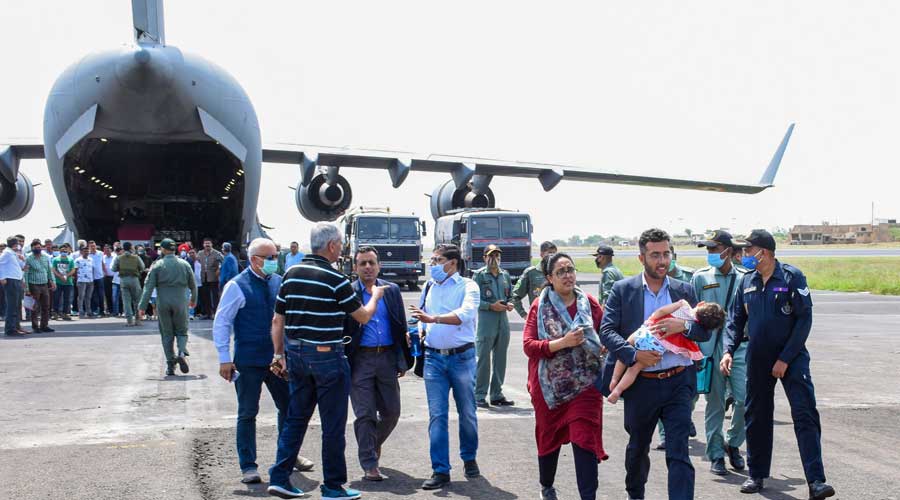When I landed in Kabul last week, my local Afghan friends advised me not to rent any taxi at the airport to reach the hotel, as the driver could turn out to be a “Talib” who could pose a security threat to me . On Monday, in the heart of the diplomatic enclave of Kabul, I was with the Taliban in a green “police” vehicle that was in the possession of the Afghan security forces until the Islamist militants came to power on Sunday.
I returned to my city center hotel, Shahr-e-Naw, in a regular taxi at around 10:30 pm last week after attending a sumptuous Afghan wedding. On Monday I drove to the airport in an armored vehicle.
Last week my local Afghan friends checked my whereabouts while I was wandering around town by myself; now I am writing to them: “Stay safe”.
This is how Kabul changed in less than a week.
Fear, panic, insecurity and hopelessness gripped Kabul on Monday as men with Kalashnikovs in Shalwar Kameez marched through the streets on foot and in open vehicles.
People who were once proud to say: “No matter what happens, life goes on in Kabul” usually locked themselves in their homes. Most business centers and stores were closed, despite the Taliban forces insisting that it be “normal” and ordering their men to allow locals to resume their daily activities and not to be “scared”.
On Monday, all checkpoints in the city that were once guarded by Afghan police and security forces were patrolled by Taliban troops. A group of Talibs with AK-47s roamed the grounds of a top city hotel where many foreign ministry officials of the defunct Ashraf Ghani government sought refuge, fearing for their lives after the collapse of the Afghan government.
Several social media posts complained that women in the city were threatened by the Taliban; in some cases their male friends have sought help from international communities on their behalf to help them leave Afghanistan safely. Many female students at Kabul University preferred to stay at home rather than attend classes.
On Tuesday, a presenter from Tolo News, Afghanistan’s largest private broadcaster that has lost several journalists to Taliban attacks over the years, interviewed a Taliban official. Although the anchor looked petrified, the Taliban’s message was loud and clear: women can do their jobs under Taliban rule.
The day before, my driver had told me that people were scared for no reason.
“Aap log yahan pe jo baithe hain itni der se, aap ko kuchh kiya? (You have been sitting here for so long, have they harmed you?) “, He asked while I and another Indian journalist waited fearfully for three hours in front of a mosque in Wazir Akbar Khan, the diplomatic enclave in Kabul., Afghanistan with officials from the Indian embassy as all commercial flights were canceled on Monday.
The Taliban men manning the entrance to the diplomatic enclave, a green zone, had refused us entry to the road to the embassy. Following the advice of an embassy official, we tried to “negotiate” with them as they may not have preferred two women stranded on the street as this goes against their “conservative” and “protectionist” nature. Our first attempt failed. They asked us to come the next morning. But we didn’t go.
Three hours later, when our driver approached them again, they said they would allow us if the embassy officials spoke to their area commander.
Also in Pashto, one of them told our driver that they don’t want us walking alone late at night and they would allow us to leave if the embassy sends someone to pick us up.
When an embassy official managed to coordinate things with a local Talib mediator after much back and forth, they offered us to take us to the embassy in their newly confiscated “police” vehicle. While we were about 100 meters from the embassy gate, the embassy van picked us up.
Before I left Kabul, when I called to thank my driver for his help, he said, “Phir aaoge toh mujhe batana (please let me know when you come next time).”
After hanging up, I checked my Afghanistan visa. I wondered where I should apply for my visa next time in order to come to the “Islamic Emirate of Afghanistan”.
Will there be a Talibs embassy in Afghanistan in India?
Sonia Sarkar, previously with The Telegraph, went to Kabul as a freelance journalist last week and was evacuated back to India with Indian embassy staff on Tuesday

